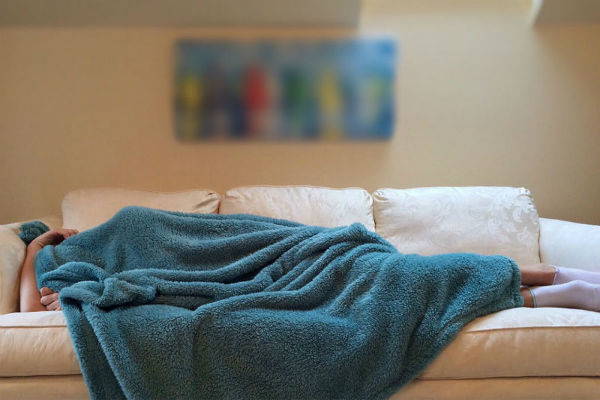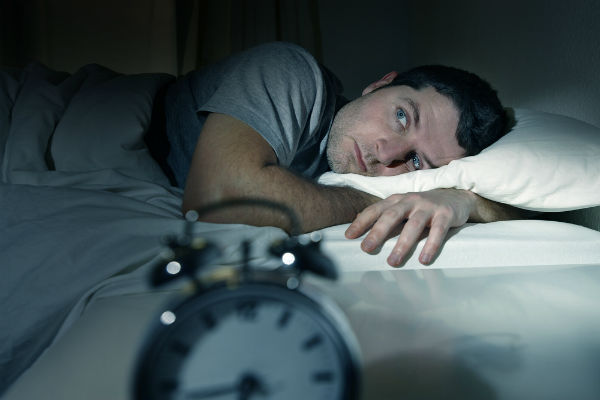We all know we can’t function without sleep. And that’s exactly the reason why this incredibly integral part of our life has mystified us for thousands of years, with answers to pertinent questions like what happens to our mind and body when we sleep, having been left unanswered. But the mystery is unfolding and we have finally understood the physiology of sleep to a great extent, though not fully.
The sleep cycle
Your sleep cycle is made of REMs (Rapid eye movement) and NREMs (Non-rapid eye movement) and this cycle repeats itself every 90 minutes, according to National Sleep Foundation. While NREM is the deeper part of the sleep, REM is the more active part. When you start to fall asleep, the sleep architecture starts with NREM, which is also said to constitute 75 per cent of the night. It is also the time when you are in deep sleep. So what exactly happens in these two cycles?

NREM occurs in the below three stages:
NREM (Stage 1)
Light sleep / Easily awakened
Disengaging from your surroundings
Regular breathing and heart rate
Drop in body temperature
NREM (Stage 2)
Enter deepest and restorative sleep
Slower breathing
Drop in blood pressure
Muscles relax
Eye movement stops
Increase in blood supply to muscles
Tissue growth and repair
NREM (Stage 3)
Restoration of energy
Important hormones are released
Slower brain waves
REM
REM occurs after NREM. As the night proceeds, duration of REM gets longer. This is what happens when you are in the REM cycle of the night:
Providing energy to brain as well as the body
Daytime performance
Brain gets active/ Dreaming
Eye movement
Muscles are turned off
What happens in sleep?
Sleep is the time when our brain resets. Explains Dr Suresh Kumar, HOD, Department of Neurology, Amrita Institute of Medical Sciences, Kochi, “When you sleep, your brain rests. When the brain rests, your heart rate comes down. Moreover, your memory gets reinforced during sleep.” So if you don’t sleep well, your brain isn’t rested and it makes it difficult for you to concentrate or even stay awake at daytime. It also impacts your memory, in turn affecting every aspect of your waking up hours.
New data suggests that NREM part of the sleep cycle is the restorative and relaxing part of the sleep. On the other hand, REM is the cycle where eyes are rapidly darting back and forth and brain waves are almost similar to your waking hours. This is the time when your brain is active almost like your waking hours and muscles are almost paralysed. It is more important for learning and memory tasks. Several literatures explain that REM is the part of the sleep that helps consolidate your emotions. This is the cycle where your muscles shut but your brain is in full activity. Since this is the part of the sleep cycle when you dream, it turns off motor neurons in your spinal cord, leading to temporary paralysis, preventing you from acting upon your dreams.
Dr Vivek Anand Padegal, Pulmonologist, Fortis Bangalore further explains, “While both REMs and DREMs are extremely important to complete your sleep cycle, if you have a sleep disorder, it impacts your REM greatly.”
Biological clock
Our sleep pattern is administered by a biological clock present in the brain. It increases production of melatonin hormone by evening and switches it off on sensing light. This hormone helps you fall asleep naturally. Dr Kumar elaborates, “Melatonin is important to maintain a sleep-wake cycle. However, if you are working odd hours and not sleeping on time, it confuses the sleep-wake cycle, leading to disrupted sleep.”
Talking about the side effects of disrupted melatonin production, Dr. Salil Bendre, Head, Pulmonary Medicine at Nanavati Super Speciality Hospital, Mumbai, says, “Normal sleep ensures normal hormones. Melatonin levels get altered if the sleep gets disturbed. This leads to depression and irritability. Improper and disturbed sleep also causes certain hormones to be produced which may cause weight gain.” Sleeping is believed to regulate hormones that determine our feelings of fullness and hunger. So if you are sleep deprived, your body may stop sending these important signals to your brain, leading to weight gain.
A bad sleep or a sleep disorder?

Dr Navdeep Kumar, MBBC, MD Medicine, DNB Neurology (Neurology) says, “More than the duration of sleep, it is the time you sleep that’s important. One should hit the bed between 9-10 pm and wake up by 6. That’s the best time.”
However, if you feel groggy despite having a full night sleep, it could be a sleep disorder that you are ignoring. Dr Nevin Kishore, Senior consultant, Respiratory medicine, Max Super Speciality Hospital, Saket warns, “Obstructive sleep apnea disorder is one of the most under diagnosed sleep issues. If you are feeling sleepy at 11 am or snoring at night, this could be a tell tale sign of sleep apnea. Not many know that it is actually a treatable condition.”
We have been told time and again that 8 hours of sleep is a must. Dr Padegal adds, “Most of us need 8 hours of sleep to get adequately rested but there are people who function fine even on 4 – 6 hours of sleep.” However, for people who don’t feel rested even after 8 hours of sleep need to consult a health expert to rule out the possibility of a sleeping disorder. “Excessive daytime sleepiness could be because of poor quality of sleep at night. Some people despite snoozing for 8 hours don’t enter the deep sleep stage. They snore, have abnormal movement in sleep, suffer from insomnia or narcolepsy. The latter is body’s decreased ability to regulate sleep-wake cycles,” he adds.
So now we know that sleeping hours are far from being unproductive. It indeed decides how productive your waking hours would be…
Click Here to learn how to Cure Snoring and Sleep Apnea

Cure Your Insomnia in 6 Simple Steps & Start Sleeping for 8 Hours Every Night – in Just 3 Days!

No Comments Yet